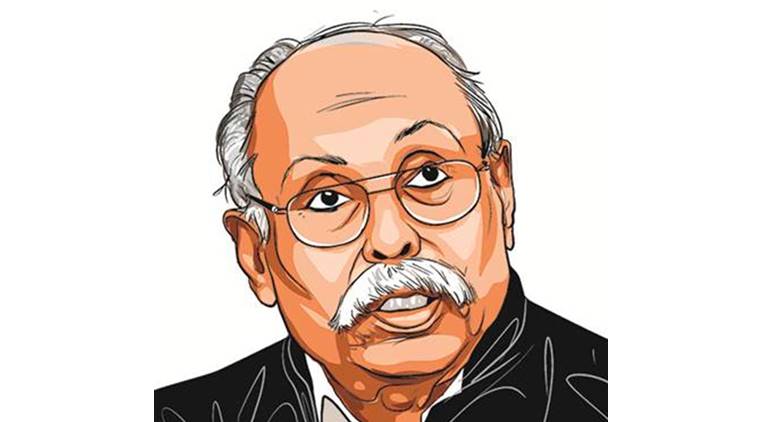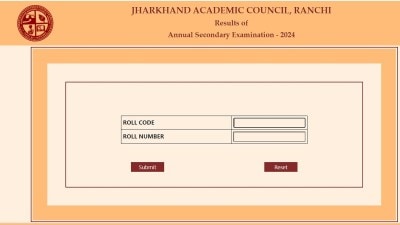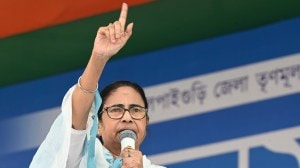- India
- International
P S Krishnan was a rare bureaucrat who sought to reform the government for marginalised
His vision derives, Krishnan used to say, from a unique blend of many ideologies: Of Ambedkar, Gandhi, Marx, Periyar, Vivekananda and Narayana Guru.
 Krishnan’s life and work are “the rarest of the rare” among Indian bureaucrats.
Krishnan’s life and work are “the rarest of the rare” among Indian bureaucrats.
P S Krishnan, who left us on November 10, was an extraordinary combination of the bureaucrat-reformer-activist. His was a life driven by single-minded devotion to the cause of the deprived and exploited.
From his student days in his native Kerala and later, as a member of the Indian Administrative Service (IAS) in the Andhra Pradesh cadre — and then in various positions including as secretary to the Government of India — he relentlessly worked for the empowerment of the Scheduled Castes (SC), Scheduled Tribes (ST) and Socially and Educationally Backward Classes (SEdBC).
He sought to mould governance and public administration into a proactive instrument of reaching out to the deprived communities. He fleshed out the true spirit of constitutional provisions and social legislation, and implemented them with uncompromising zeal, brushing aside severe opposition from powerful sections inside and outside government. Challenging India’s inequities and inhumanities is not new. What is rare is the challenge emerging from within the system, from within the core of the “Steel Frame”. And Krishnan’s life and work are “the rarest of the rare” among Indian bureaucrats.
As a young officer in Andhra Pradesh, he conducted his official camps in Scheduled Caste bastis and tribal villages, infusing self-esteem in the depressed sections, but infuriating the upper caste-classes. In addition, the imperious officialdom did not know how to deal with this young brat, who was striking at the root of its power. They viewed him as a scourge, accusing him of “strident advocacy of inter-caste marriages, partiality to depressed classes, trusting the words of the villagers rather than village officers and acting in a manner that helped subversive elements.”
Not bothering to reply to these remarks, Krishnan went on to advocate not “inter-caste” marriages, but “anti-caste” marriages. He also said that there should be a legislation prohibiting marriages in the same caste. “I expounded the concept of ‘social incest’, in addition to the concept of ‘biological incest’.”

As early as in 1957, he launched massive drives for the distribution of agricultural land and house sites to the landless and homeless in Andhra Pradesh. His pioneering work constitutes milestones in the post-independence history of Andhra Pradesh.
READ | P S Krishnan, bureaucrat behind landmark social justice legislation, dies
His vision derives, Krishnan used to say, from a unique blend of many ideologies: Of Ambedkar, Gandhi, Marx, Periyar, Vivekananda and Narayana Guru. He used to say that he entered the civil service armed with an uncompromising commitment to fight against the entrenched caste system and untouchability, and to strive for social justice.
When he rose to senior positions, as secretary to GoI, for instance, he conceived and implemented path-breaking initiatives. He was the crucial force behind constitutional and legislative enactments like the Constitution (65th) Amendment Act, 1990, vesting constitutional status in the National Commission for SCs and STs; the SC and ST (Prevention of Atrocities) Act, 1989; and, the Employment of Manual Scavengers and Construction of Dry Latrines (Prohibition) Act, 1993.
Krishnan also formulated many schemes for the betterment of the marginalised like the Special Component Plan for Scheduled Castes (SCP) in 1978. His tireless efforts pulled out the Mandal Commission Report from cold storage and he persuaded V P Singh to implement it. Each of these initiatives he helmed was, inevitably, challenged in the courts. With his remarkable acumen, he drafted elaborate arguments to face the judicial process, that ultimately placed them on unassailable legal foundations. Among these were the Mandal legislation and reservations in educational institutions for SCs, STs and OBCs.
On the question of who are the oppressed sections in India — is it class or caste that is the basic unit of Indian society? — Krishnan advocates a unified caste-class approach. The basic contradiction in rural India today is between the dominant landed backward castes and landless Dalits, who constitute the main labour force. However, a large section of OBCs, particularly the innumerable service and artisanal castes, too, are landless and so there is no contradiction between these castes and Dalits. The two sections of the non-dominant, landless castes coming together and transcending caste barriers, would forge the unity of the oppressed — and lead to the liberation of society. Distribution of land to all the landless is, hence, key to the much needed transformation of Indian society. Krishnan’s legacy should lead us towards the annihilation of caste and a world of justice and human rights.
This article first appeared in the print edition on November 21, 2019 under the title ‘Challenger from within’. The writer is former vice chancellor of Manonmaniam Sundaranar University, Tamil Nadu.
EXPRESS OPINION
More Explained
Apr 19: Latest News
- 01
- 02
- 03
- 04
- 05









































